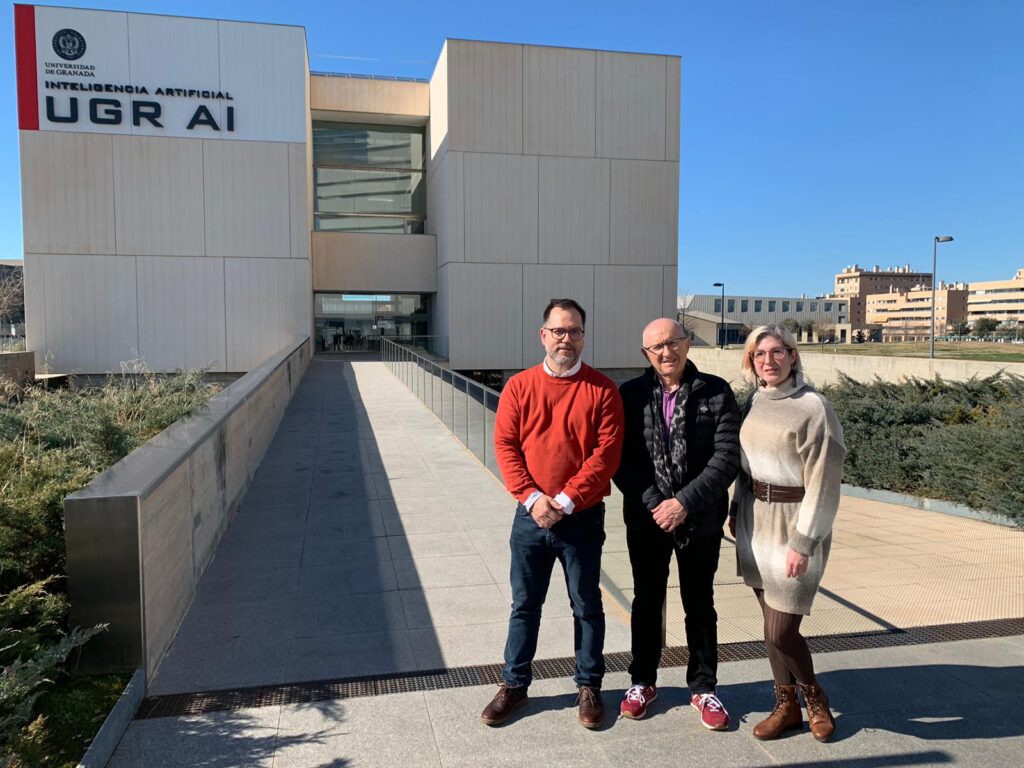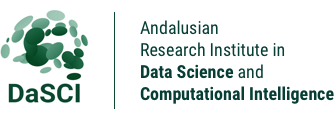University-Business Chair in AI – UGR-Repsol
24 January, 2024
The UGR obtains, in collaboration with Repsol, one of the university-business chairs in Artificial Intelligence awarded by the Ministry of Economic Affairs and Digital Transformation.
It is financed with 1.6 million euros over four years and will allow the development of the project ‘Ethical, Responsible and General Purpose Artificial Intelligence: Applications in Risk Scenarios’
The University of Granada, in collaboration with Repsol, has obtained funding of 1.6 million euros to create a university-business chair that, in the next four years, will develop the project Ethical, Responsible and General Purpose Artificial Intelligence: Applications in Risk Scenarios. The UGR presented its project in November to a call from the Ministry of Economic Affairs and Digital Transformation that, within the framework of the National Artificial Intelligence Strategy (ENIA), will finance university chairs dedicated to research, dissemination, teaching and innovation on Artificial Intelligence ( AI) and cybersecurity. This January 23, the resolution was made public and the project was the best valued of all those presented, obtaining the maximum possible financing.
Ethical, Responsible and General Purpose Artificial Intelligence: Applications in Risk Scenarios is a project co-financed by Repsol, which will contribute 400,000 euros to the chair, in addition to the 1.2 million financed by the Ministry. This chair represents a new milestone in the collaboration between the UGR and Repsol, which for five years has maintained a close and uninterrupted collaboration through various research projects and technology transfer based on Artificial Intelligence.
In this case, it is an ambitious project where progress is made in one of the great challenges of Artificial Intelligence (AI), such as the development of intelligent technologies with an ethical dimension and responsible use that fall within the so-called trustworthy AI (Trustworthy Artificial Intelligence). , in English). The project includes an extensive scientific dissemination program to publicize this reliable AI, as well as a training space that will address the creation of specialized courses on this topic.
This university-business chair also has an international projection with the inclusion of two researchers from the University of Modena, Rita Cucchiara and Lorenzo Baraldi, with extensive experience in the field of explainability of AI algorithms. These join an interdisciplinary team of researchers from Repsol and the University of Granada (Francisco Herrera, Enrique Herrera, Sergio Damas, Natalia Díaz, Coral del Val, Daniel Molina, Francisco Lara, Isaac Triguero, Victoria Luzón, Rosana Montes, Siham Tabik and Rocío Romero). All participants have extensive experience in this area of research.
The development of trustworthy AI systems entails a series of ethical and regulatory requirements that must be taken into account. These issues require diving into philosophy (in terms of ethics), law (in terms of regulation and user rights) with compliance with the European regulatory standards for artificial intelligence that will be approved in 2024 and compliance for two years. later (the so-called Artificial Intelligence Act) and sociology (exploring the social implications of new technological developments). The chair will address a pressing challenge in our society for the development of artificial intelligence that complies with ethical principles as well as the associated regulation.
The development of reliable AI systems is a multidimensional challenge that must be addressed from multiple perspectives. From a technical point of view, systems must be robust, fair, guarantee data privacy and be transparent and explainable. Many of these properties transcend their mere technical aspect, since they must be validated in a specific scope of application. For example, the concepts of explainability and fairness may be different in a scientific context than in a social context, or robustness depends on the specific use case, etc.
At the level of the scenario applied in the area of development of Repsol, a line of research is proposed to develop artificial intelligence models for use in critical infrastructures, such as an oil refinery, that are robust and that guarantee safety in taking decisions. decisions of intelligent systems. Application domain experts will define validation procedures and evaluate the quality of these procedures. Repsol will facilitate this real scenario for the application of the systems and processes that will be developed in the project. This is one of the so-called high-risk scenarios for the use of artificial intelligence in European regulation and therefore requires the development of reliable artificial intelligence models.
On the other hand, AI research is advancing at an accelerated pace and new lines appear that take on special relevance. One of them is known as General Purpose AI (GAIA), which deals with the development of AI technologies that can adapt to different problems and contexts in an almost automatic way. This project addresses these advanced models that can be applied to different prediction problems present in a refinery through the transfer of knowledge from one problem to another.
During the four years of execution of the chair, both engineers will be hired who will be able to carry out their doctoral thesis in the different lines proposed by the project, as well as postdoctoral researchers who can add their experience in the area.
This call from the Ministry of Economic Affairs and Digital Transformation will mobilize around 59 million euros through public-private contributions that will allow scholarships for around 150 researchers in the next four years. The program is part of the National Artificial Intelligence Strategy (ENIA), the Digital Spain 2026 agenda, as well as the Recovery, Transformation and Resilience Plan.
Photos: Francisco Herrera, director of the Chair and in another image, Chair members Sergio Damas, Enrique Herrera and Rocío Romero.







